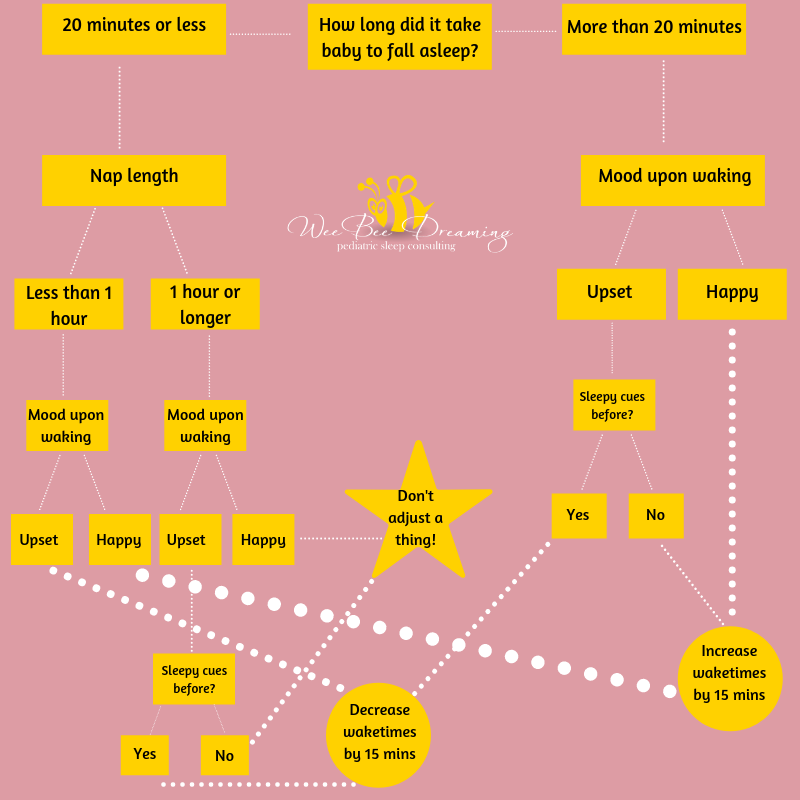We all have that friend. The one with the 9 month old baby that takes two 2 hour naps and then sleeps 12 hours straight at night. Or the one with a 2 year old that takes a 3 hour nap and sleeps 7pm-7am. Comparison is the thief of joy, and when we start comparing our low sleep needs babies to these high sleep needs children, it can be difficult not to feel like we are failing somehow. But here’s the thing - children have different sleep needs. Just the same as adults that can function on 6 hours of sleep but I feel groggy after only 8 hours! While these high sleep needs children exist, having a child with low sleep needs is a reality for many! Read on below to find out what it means to have a low sleep needs child, how you can tell if this is your child, and how to manage sleep if you were blessed with a kiddo that just doesn’t need as much sleep!
What does it mean to have low sleep needs?
Simply put, a lower sleep needs child will have a daily sleep requirement that is lower than the ‘average’ child. This number is typically at least 30-60 minutes lower than the lower range of average. Some signs that your child may have lower sleep needs than average include:
Seeming happy and content with less sleep
Dropping naps earlier than the recommended averages
Catnapping, especially waking happy from catnaps
Flexible when naps/bedtime are late [i.e., does not seem to impact sleep in a negative way]
Do not show many sleepy cues
Easy to wake in the morning/from naps
Early wake-ups [i.e., before 6:00am/less than 11 hours of sleep], especially happy early wakings
Extended nightwakings where the child is happy/quiet [also called ‘split nights’]
How can I tell if my child has low sleep needs?
Aside from the above signs, kids with lower sleep needs tend to have longer-than-average waketimes [i.e., the amount of time they are awake in between sleep times]. They tend to handle these longer waketimes quite well, meaning they aren’t getting fussy before sleep times and are sleeping well despite the extended time. To break it down by age, longer than average waketimes looks like:
Waketimes are > 2 hours at 4 months
Waketimes are > 2.25 hours at 5 months
Waketimes are > 2.5 hours at 6 months
Waketimes are > 2.75 hours at 7 months
Waketimes are > 3.5 hours at 8 months
Waketimes are > 3.75 hours at 9 months
Waketimes are > 4 hours at 10-12 months
In addition to these extended waketimes, kids with lower sleep needs may also:
Need less than the standard 11-12 hours of sleep at night
Often take short naps that they wake happy from, despite being at the long end of waketimes
Take longer than 20 minutes to fall asleep for naps/bedtime, despite being at the long end of waketimes
Have sleep habits that overall, just seem ‘hard’ [presumably this may be because we are trying to get them to sleep more than they need to]. Parents may report that their children just seem like ‘bad’ sleepers or that there is a lot of protesting/crying around sleep times
How much sleep do lower sleep needs children need?
While sleep needs requirements can vary greatly with babies and children, averages do exist. Lower sleep needs children will seem to be content with sleep totals that are less than these averages [note that these below numbers reflect total sleep in a 24 hour period - naps and nighttime inclusive]:
4 months:
High end = 16+ hours
Average = 15.5 hours
Low end = 15 hours or less
5 months:
High end = 15.5+ hours
Average = 15 hours
Low end = 14.5 hours or less
6 months:
High end = 15+ hours
Average = 14.5 hours
Low end = 14 hours or less
7/8 months:
High end = 15+ hours
Average = 14-14.5 hours
Low end = 13.5 hours or less
9-11 months:
High end = 14.5+ hours
Average = 14 hours
Low end = 13.5 hours or less
12-14 months:
High end = 14+ hours
Average = 13.5-13.75 hours
Low end = 13 hours or less
15-18 months:
High end = 14+ hours
Average = 13-13.5 hours
Low end = 12.5 hours or less
19-23 months:
High end = 13+ hours
Average = 12-12.5 hours
Low end = 11.5 hours or less
2 years of age:
High end = 13+ hours
Average = 12-12.5 hours
Low end = 11.5 hours or less
3 years of age:
High end = 12.5+ hours
Average = 11-12 hours
Low end = 10.5 hours or less
4 years of age:
High end = 12.5+ hours
Average = 10-12 hours
Low end = 9.5 hours or less
While lower sleep needs children seem to be satisfied with their lower sleep totals, if your child is clocking less than average sleep but often exhibits signs of overtiredness, it’s possible that they may actually need more sleep than they are managing, but there could be some external factors preventing them from obtaining sufficient sleep [parent-led sleep associations, too-long waketimes, sleep environment that is not conducive to sleep, too many naps on the go, too-late of a bedtime, etc.] Some of the signs that your child may not be sleeping enough include:
Showing an overall lack of interest in people or their environment
Lots of yawning, ear pulling, and eye rubbing throughout their awake time
Red eyebrows or ‘bags’ under their eyes
Nightwakings [especially those within 4 hours of bedtime] where they are crying
Waking crying from short naps
Early wake-ups where they are upset/crying
Excessive clinginess
Lower frustration or pain threshold
Frequent outburts/tantrums
Overactivity [thanks to cortisol & adrenaline]
Falling asleep anytime they are in motion
Night terrors [in toddlers] or frequent sleep-cries [in babies]
If my child has lower sleep needs, what can I do?
As they say, the first step is acceptance! Accept that your child having lower sleep needs is no reflection on your parenting, or anything you have done/haven’t done. It’s just biology! Trying to force sleep on a child that is not sleepy will be frustrating for everyone, so let go of any expectations or any comparisons but also make sure to:
Keep a close eye on the clock since sleepy cues alone aren’t reliable with low sleep needs children. Kids with low sleep needs can still become overtired if we push them too far, so make sure you are still being mindful of waketimes [albeit they may be longer than average, as per above!] to ensure they are still receiving the minimum amount of sleep.
Keep in mind that they may hit nap transitions earlier than average. For example:
Dropping to 3 naps at 4 months or earlier
Dropping to 2 naps at 5/6 months of age
Dropping to 1 nap at 11/12 months of age
Dropping naps entirely before the age of 3Be mindful of any resistance you are seeing around sleep times [nap refusals, trouble setting at bedtime, early wake-ups] and don’t be afraid to try longer waketimes or later bedtimes if you are seeing a lot of resistance to sleep.
Keep a sleep log! Look closely at your child’s mood before sleep times, their mood after sleep times [i.e., do they wake immediately happy/quiet? Fussing/crying?], and total sleep. Use the chart below to determine if you may need to extend some waketimes, and if you suspect your baby has lower sleep needs, try not to worry that it seems they are longer than ‘average’. If waketimes during the day are longer but your child is still sleeping well at night, you may just have a low sleep needs baby.
Are there any benefits to having a low sleep needs child?
As a mom of 3 high sleep needs children, I can tell you that the grass isn’t always greener! Having a child with higher sleep needs is great when they are able to get the sleep they need, but it can also make things much more challenging during the times when they aren’t able to [whether it’s late bedtimes due to family functions, travelling, sleepovers with friends, etc.] Children with lower sleep needs are often able to handle variability in their schedules with greater ease. The odd late bedtime [or even several late bedtimes in a row!], skipped/late naps, and frequent naps on the go may not even phase them.
While there are obvious benefits, having a child with lower sleep needs can also be a bit more challenging as it can be difficult to pinpoint optimal timing of sleep without obvious sleepy cues, therefore we have to watch the clock more closely. Also, standard guidelines for sleep on the internet may not apply to your child and that can make it hard not to compare to other babies that may be napping longer or sleeping longer or later in the morning.
Sample Schedules for Low Sleep Needs Children
See here for sample schedules for average sleep needs children!
4/5 months
6:30am – wake up, change, feed, play
8:15am - down for nap #1 [1.75 hours of waketime]
8:30am-9:30am – nap #1, change feed, play
11:45am - down for nap#2 [2.25 hours of waketime]
12:00pm-1:00pm – nap #2, change, feed, play
3:15pm - down for nap #3 [2.25 hours of waketime]
3:30pm-4:00pm – nap #3, change, feed, play
5:45pm - bedtime routine begins w/ a feed first
5:55pm - bath, massage, jammies, book, song
6:15pm - down for the night [2.25 hours of waketime]
6:30pm – asleep for the night
12:00am – potential nightfeed #1 [5-6 hours from bedtime feed]
4:00am – potential nightfeed #2 [3.5-4 hours from last feed]
2.5 hours in naps + 11 hours at night = 13.5 hours total sleep
6/7 months
6:30am – wake up, change, feed, play
8:00am - breakfast solids
8:45am - down for nap #1 [2.25 hours of waketime]
9:00am-10:00am – nap #1, change, feed, play
11:30am - lunch solids
12:15pm - down for nap #2 [2.25 hours of waketime]
12:30pm-1:15pm – nap #2, change, feed, play
3:45pm - down for nap#3 [2.5 hours of waketime]
4:00pm-4:30pm – nap #3, change, feed, play
6:30pm - bedtime routine begins w/ a feed first
6:40pm - bath, massage, jammies, book, song
7:00pm - down for the night [2.5 hours of waketime]
7:15pm – asleep for the night
2:00am – potential nightfeed [7-8 hours from bedtime feed]
2.25 hours in naps + 10.75 hours at night = 13 hours total sleep
8/9 months
6:30am – wake up, change, feed, play
9:00am - breakfast solids
9:45am - down for nap #1 [3.25 hours of waketime]
10:00am-11:00am – nap #1, change, feed, play
12:30pm - lunch solids
2:30pm - down for nap#2 [3.5 hours of waketime]
2:45pm-3:45pm – nap #2, change, feed, play
5:30pm - dinner solids
6:45pm - bedtime routine begins w/ a feed first
6:55pm - bath, massage, jammies, book, song
7:15pm - down for the night [3.5 hours of waketime]
7:30pm – asleep for the night
4:00am – potential nightfeed [9-10 hours from bedtime feed]
2 hours in naps + 10.5 hours at night = 12.5 hours total sleep
10/11 months
6:30am – wake up, change, feed, play
9:00am - breakfast solids
9:45am - down for nap #1 [3.25 hours of waketime]
10:00am-11:00am – nap #1, change, feed, play
12:30pm - lunch solids
2:45pm - down for nap#2 [3.75 hours of waketime]
3:00pm-3:45pm – nap #2, change, feed, play
6:00pm - dinner solids, milk w/ dinner
7:00pm - bedtime routine begins
7:10pm - bath, massage, jammies, book, song
7:30pm - down for the night [3.75 hours of waketime]
7:45pm – asleep for the night
1.75 hours in naps + 10.75 hours at night = 12.5 hours total sleep
12-18 months [on 1 nap]
6:30am – wake up, change, feed, play
7:00am - breakfast solids or milk w/ breakfast
9:00am - snack w/ milk or water
11:30am - lunch w/ milk
12:15pm - down for nap
12:30pm-2:30pm – nap, change, feed, play
3:00pm - snack or milk w/ snack
6:00pm - dinner w/ milk
7:15pm - bedtime routine - bath, massage, jammies, book, song
7:45pm - down for the night
8:00pm – asleep for the night
2 hour nap + 10.5 hours at night = 12.5 hours total sleep
19-23 months
6:30am – wake up
7:00am - breakfast
9:00am - snack
12:00pm - lunch
12:45pm - down for nap
1:00pm-2:30pm – nap
3:00pm - snack
6:00pm - dinner
7:45pm - bedtime routine - bath, massage, jammies, book, song
8:15pm - down for the night
8:30pm – asleep for the night
1.5 hour nap + 10 hours at night = 11.5 hours total sleep
2 years old
6:30am – wake up
7:00am - breakfast
9:00am - snack
12:00pm - lunch
1:00pm - down for nap
1:15pm-2:15pm – nap
3:00pm - snack
6:00pm - dinner
7:45pm - bedtime routine - bath, massage, jammies, book, song
8:15pm - down for the night
8:30pm – asleep for the night
1 hour nap + 10 hours at night = 11 hours total sleep
3 years old [with nap]
6:30am – wake up
7:00am - breakfast
9:00am - snack
12:00pm - lunch
1:15pm - down for nap
1:30pm-2:00pm – nap
3:00pm - snack
6:00pm - dinner
7:45pm - bedtime routine - bath, massage, jammies, book, song
8:15pm - down for the night
8:30pm – asleep for the night
30 minute nap + 10 hours at night = 10.5 hours total sleep
3 years old [without nap]
6:30am – wake up
7:00am - breakfast
9:00am - snack
12:00pm - lunch
1:30pm-2:15pm – quiet time
3:00pm - snack
6:00pm - dinner
7:15pm - bedtime routine - bath, massage, jammies, book, song
7:45pm - down for the night
8:00pm – asleep for the night
= 10.5 hours total sleep
4 years old
6:30am – wake up
7:00am - breakfast
9:00am - snack
12:00pm - lunch
1:30pm-2:15pm – quiet time
3:00pm - snack
6:00pm - dinner
8:15pm - bedtime routine - bath, massage, jammies, book, song
8:45pm - down for the night
9:00pm – asleep for the night
= 9.5 hours total sleep
Understanding and accepting that there are different sleep needs can be very freeing as a parent. Once you let go of any preconceived notions about how much your child needs to be sleeping at night or napping during the day, I hope that you’re able to relax and enjoy parenthood so much more.
If, however, your child is sleeping much less than recommended and you are feeling like it is not due to low sleep needs, please contact me and we can work together to find a solution for your family!
Pam Edwards is a Certified Infant & Child Sleep Consultant and founder of Wee Bee Dreaming Pediatric Sleep Consulting, based out of Kamloops, B.C. Healthy sleep is addicting and she has made it her life mission to help families all across the world get the sleep they deserve - a good night's sleep doesn't have to be a dream!





![BACK TO SCHOOL! 📚 🍎
While there is a lot of uncertainty in our house with school this year [as I'm sure most families are experiencing!] one thing for certain is that we've got to scale back our ☀️summer bedtimes☀️ for back to school next week!](https://images.squarespace-cdn.com/content/v1/52531afee4b0f4b1f8aa79be/1601470556866-QORB0LBNG8Q204V7Y50N/image-asset.jpeg)

![CONTEST CLOSED⭐️GIVEAWAY/REVIEW!⭐️
I may have found my new favorite sound machine - introducing the SNOOZ!
Why do I ❤️love❤️ it so much?
🎵Lately I've been a big fan of pure #whitenoise [i.e. not an audio track] and the @snooz has a re](https://images.squarespace-cdn.com/content/v1/52531afee4b0f4b1f8aa79be/1601507619148-KSB6PM01DMX88BN903PG/image-asset.jpeg)
![DREAMFEEDING! 🌙 🍼
I've never done a DF with any of my kids [mainly because as babies I felt I worked so hard to get them to sleep, I'd be darned if I was going to risk waking them up!] but I've seen it work amazingly well for families I'm worki](https://images.squarespace-cdn.com/content/v1/52531afee4b0f4b1f8aa79be/1601507619148-1CJQR7LI3HD59XAKDBJK/image-asset.jpeg)



